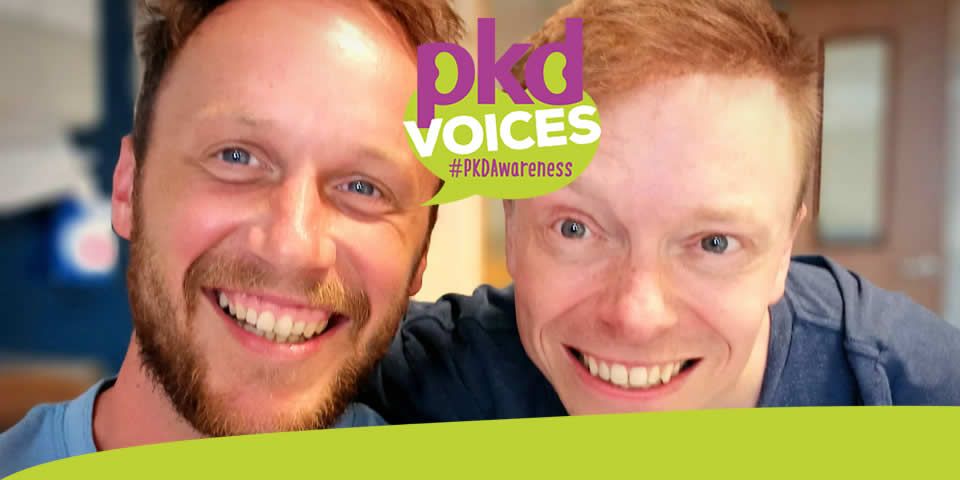
James
The number of living organ donors in the UK has trebled over the last 20 years, with kidneys being the most commonly donated organs. In fact a 1/3 of all kidney transplants carried out in the UK are from living donors. Here, 34 year old James Hayley explains how logic - as well as a lifetime bond - led him to donate a kidney to best friend, Josh.
Why did you decide to donate?
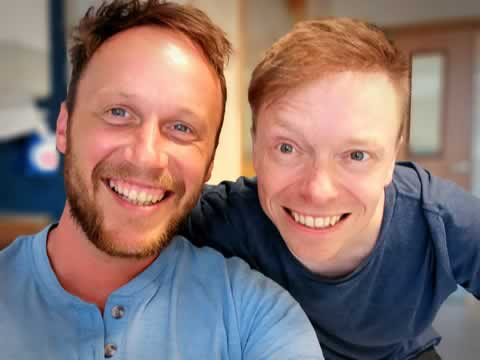
Childhood pals James (left) and Josh
There is both a simple and complex answer to that question! The simple answer is that my best friend, who I’ve known since I was two-years-old, needed a kidney, and I had one going spare (or at least I hoped I did!). Of course all the usual doubts circled my mind, so I thought I would put my scientific research skills to use from my three years at university. I started researching the peer-reviewed literature for data on the long-term effects of live donation.
What I found most re-assuring is the amount of research there is on people living with one kidney, due to either the loss of a kidney for whatever reason, or only having one kidney from birth. This research shows that there isn't a significant difference in life expectancy of someone living with one kidney versus two. Furthermore, my grandmother only had one kidney from her mid-thirties due to a non-hereditary condition, and lived a healthy, happy life to the ripe-old age of 92!
It also helped to chat with other living donors, which I did by joining a couple of online support groups.
Armed with all the facts, I sat back while my logical brain posed this question: is living kidney donation any more risky than any of the other risks I take in my daily life, such as driving a car, playing sport and traveling around the world?
The research says no, and that was good enough for me.
How did you prepare for surgery?
I’d read that it was important to do some psychological prep. I started by accepting the possibility that there was a risk (albeit small) of some post-op complications. But in doing so, I knew I was willing to accept the risks if it meant saving the life of my best friend. If my recovery went smoothly then it'd be a bonus. Josh and I also had some honest conversations. For example, accepting the possibility of the transplant being unsuccessful, and that he should not feel guilty - as can sometimes happen - if I did have problems afterwards.
As such, I felt extremely positive going into surgery.
How did you feel on the day of the surgery?
It wasn't until I was being wheeled down to the operating theatre that the reality of the situation fully sunk in, and 'fear' raised its ugly head. I just took some deep breaths and went into a quick meditation. I quickly realised that I'd made a very well researched and calculated decision, and I was sticking with it. It was my calm and collected mind that had made that decision, not my emotionally erratic mind. With that realisation, I laid down on the operating table and the fear drifted away. As they prepared me to go under I took two deep breaths. I don't remember taking a third...
How were you afterwards?
The first week was the hardest, I won't sugar coat it for you. There was pain, which was manageable with the painkillers. Except I didn't help matters by over doing it. As someone who does a lot of kitesurfing, surfing and walking I'm not good at being still. Consequently, after the surgery and high on painkillers I walked the corridors for about 2 hours, thinking ‘the more I move, the better!’. Plus, it helps shift the gas they inflate your abdomen with during the op. The surgeon, though impressed with how much walking I'd managed, stressed that it's important not to "heal too fast". Of course, that's easy in hindsight but when you've just come round from major surgery you're not exactly in your right mind!
Despite this, I felt extremely positive about how things had gone. When the surgeon enthusiastically announced that Josh's creatinine levels were down to 99 and I asked "is that normal for 3 days after the op?" he said "it's pretty much unheard of".
At that point we both knew it had all been worth it, and we shed a tear!
How are you now?
Four weeks on and both Josh and I are doing well. I can manage short walks without too much discomfort, my scars are healing well and I am confident I'll be back to normal soon. Josh has made an amazing recovery so far and we are both hopeful for the future.The best part is I'm going to be just as I was before, and my best friend is back to his healthy, happy self. We are both closer than we were, even though he has always felt like a brother to me, and if I had to go through it all again I'd do it in a heartbeat.
Finally, I'd like to say a massive thank you to all the surgeons and living donor team at Addenbrooke's Hospital for everything they have done for us. They have been remarkable, and are truly some of the leading experts in living kidney donation.
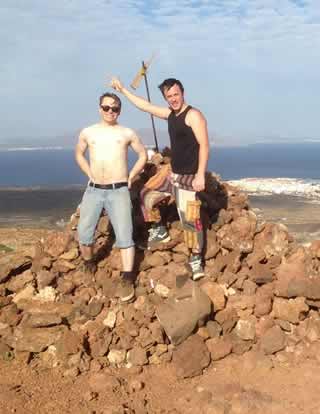
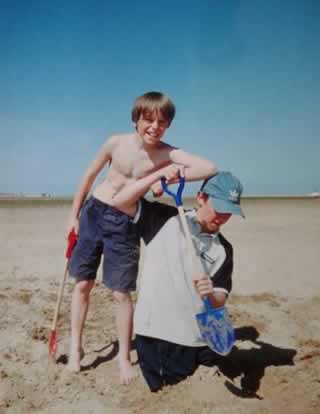
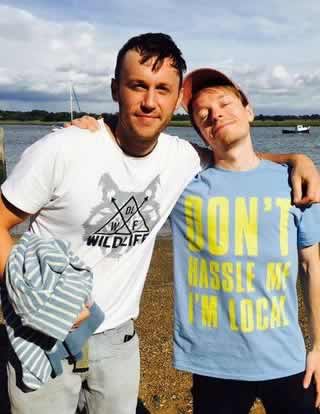
James and Josh
Less than two weeks after Josh received his transplant, his brother Justin received a kidney from a deceased donor. Read their story.
